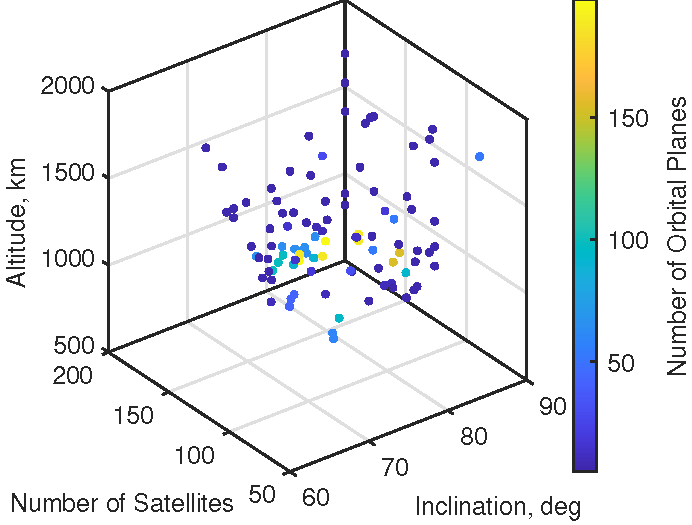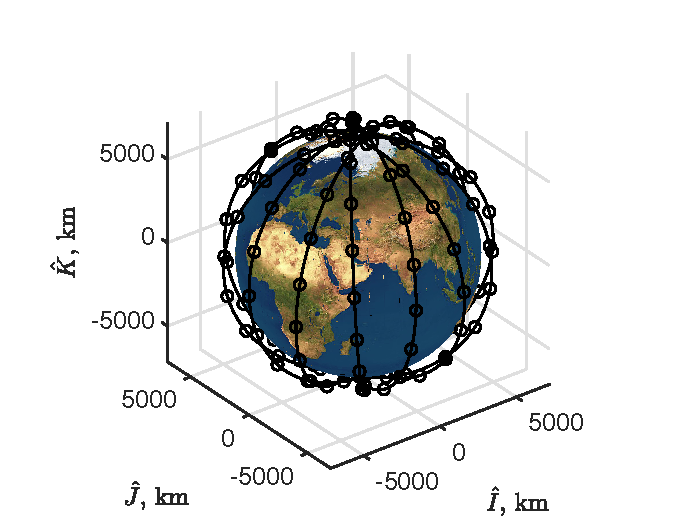Satellite constellations are on the verge of dramatically changing the space industry and economy. The thousands of satellites deployed in low-Earth orbit for telecommunications services by private entities represent a clear paradigm shift in space exploitation. At the same time, the increasing use of, and sometimes reliance on, constellation-based services come with additional challenges in the design of the constellation itself, to ensure a robust and cost-effective performance.
In the design of the constellation system, the provider seeks for an optimised coverage and quality of service around the Earth surface. The latest research published in Acta Astronautica by our researcher Simeng Huang, together with prof. Camilla Colombo, and prof. Franco Bernelli Zazzera, focuses on the optimisation of the constellation design accounting for multiple criteria such as coverage, robustness, launch, build up, station-keeping and end-of-life disposal. The focus has been placed on two different architectures: Walker constellations and street of coverage constellations.

The multi-criteria design is solved by defining index functions for each of the criteria considered. A quantitative assessment of the influence of the constellation configuration on these index functions is shown and discussed, analysing the required trade-off at design levels.
Finally, a multi-objective optimisation problem allows to find the Pareto-optimal solutions through an advanced numerical method. Pareto fronts are a very important tool in multi-objective optimization, because they represent the “frontier” of the best configurations that can be achieved. The optimal solution in the Pareto front can then be selected according to the given mission scenario. Particularly, the two mission scenarios explored are a 1-fold low Earth orbit mission and a 4-fold medium Earth orbit mission.
The article is available in Open Access! You can download it here: https://doi.org/10.1016/j.actaastro.2021.07.002

